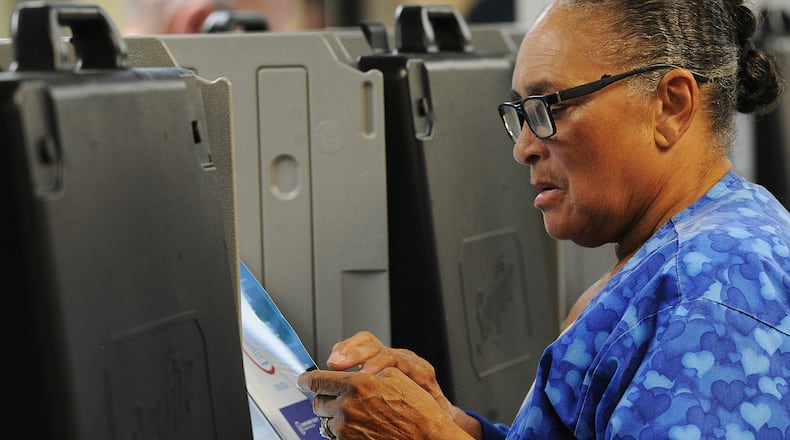Below is the language you will see on the ballot for each issue, a summary of our reporting and a link to the full analysis.
State Issue 1
What it says:
To require courts to consider factors like public safety when setting the amount of bail
Proposed Constitutional Amendment
Proposed by Joint Resolution of the General Assembly
To amend Section 9 of Article I of the Constitution of the State of Ohio
A majority yes vote is necessary for the amendment to pass.
The proposed amendment would:
• Require Ohio courts, when setting the amount of bail, to consider public safety, including the seriousness of the offense, as well as a person’s criminal record, the likelihood a person will return to court, and any other factor the Ohio General Assembly may prescribe.
• Remove the requirement that the procedures for establishing the amount and conditions of bail be determined by the Supreme Court of Ohio.
If passed, the amendment will be effective immediately.
What it means:
Supporters of the measure including Ohio Attorney General Dave Yost say the measure will improve public safety after the Ohio Supreme Court ruled that whether the suspect poses a threat to the community cannot be part of determining the amount of bail.
Opponents say public safety can still be taken into consideration by judges denying bail altogether if they think someone is a threat to the community and that bail should only be used to make sure someone shows up to court. They say the measure will undermine actual bail reform and take power from the Supreme Court and give it to the General Assembly.
State Issue 2
What it says:
To prohibit local government from allowing non-electors to vote
Proposed Constitutional Amendment
Proposed by Joint Resolution of the General Assembly
To amend Section 1 of Article V, Section 3 of Article X, and Section 3 of Article XVIII of the Constitution of the State of Ohio
A majority yes vote is necessary for the amendment to pass.
The proposed amendment would:
- Require that only a citizen of the United States, who is at least 18 years of age and who has been a legal resident and registered voter for at least 30 days, can vote at any state or local election held in this state.
- Prohibit local governments from allowing a person to vote in local elections if they are not legally qualified to vote in state elections. If passed, the amendment will be effective immediately.
What it means:
Proponents of the measure, including Ohio Secretary of State Frank LaRose, say the measure is in reaction to the village of Yellow Springs attempting to let non-citizens vote on local issues. They say letting non-citizens vote would cheapen the value of citizenship and require election officials to create separate ballots.
Opponents say the measure is an unnecessary political stunt since the Ohio Constitution already says you have to be a citizen to vote - though some analysis say it’s unclear if this applies on the municipal level - and may have unintended consequences such as prohibiting 17-year-olds from voting in a primary if they will be 18 by the general election, as current law allows.
Follow the latest from Jim Gaines on Twitter, and follow our Ohio Politics page on Facebook.
About the Author

